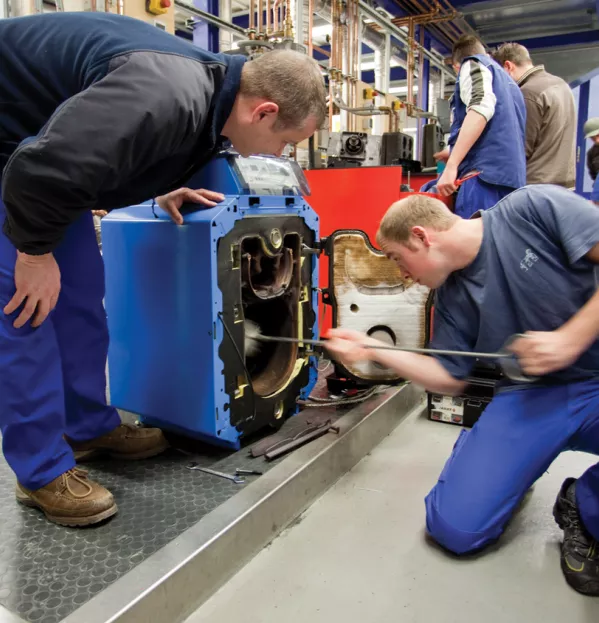Students with special needs can flourish in a workplace

The UK currently has a record employment rate of about 75 per cent - that equates to 32 million people with jobs. However, the number of people with a learning disability who are in paid employment is just 6.4 per cent - fewer than 10,000 people.
This is shocking statistic, particularly when you consider the £330 million a year being spent on further education for people with a wide range of learning disabilities.
Where are things going wrong? Careers education for children with special needs is sadly severely limited. Many will go from school (special or mainstream) on to college, but then reach the point where no further doors are open to them. With little or no encouragement to consider employment options, these young adults often accept and settle into a life on benefits. They might attend day centres or undertake voluntary work for a few hours a day, but the holy grails of paid employment, progression and developmental opportunities are often seen as unobtainable.
Rarely are these students encouraged to talk about their career aspirations or helped to fulfil their true potential. The truth is that if they are supported in the right way, learners with special needs can flourish in a workplace and become a real asset to a business.
What support is out there?
There are various schemes and organisations that aim to support people with disabilities to gain employment. The government has its own Disability Confident scheme, but this is aimed primarily at employers, incentivising them to employ a more diverse workforce.
Rarely are these students encouraged to talk about their career aspirations
Many FE colleges provide “learning for living and work programmes”, helping to equip students with a range of skills needed for independent living. However, this is not always related to employment and little thought is given to what a student will do when the course is completed.
Supporting learners/employers
The only model to have proven successful in relation to getting people with learning disabilities into fulfilling, paid employment is one that offers a bespoke supported employment programme. We set one up here at London South East Colleges six years ago to help students with a range of complex-to-moderate learning disabilities in order to gain employability skills, experience and, ultimately, paid employment. The success of our work speaks for itself: employment rates for our students are about 33 per cent - five times higher than the national average. We are aiming to increase this to an ambitious 75 per cent and are confident that it is achievable with the employer-focused programmes we have in place.
Our Nido Volans Centre, which includes a student-led restaurant, a manufacturing workshop and horticultural facilities, provides the backdrop for our award-winning provision.
The key to our success? The support we offer students and employers. This is a two-way street, ensuring they get the best out of one another.
Benefits to employers
We work with a range of employers, including Waitrose, Toby Carvery, Gap, British Heart Foundation, National Health Service and many more. These employers are diverse, as are our students. Employing a student with special needs can bring many benefits to a business, whether it is part of a corporate social responsibility strategy, or simply the wish to create a more inclusive working environment. Our students are hardworking and reliable members of staff with a real desire to perform well. Other staff within a business can gain a lot from supporting them, and being part of their development and success.
Preparing learners
When arranging any initial work-experience placements, the students must be matched carefully to employers, taking into account business requirements, as well as the skills and interests of the student.
We want our students to be ambitious, while ensuring placements are realistic
We want our students to be ambitious, while ensuring placements are realistic. In terms of preparation at college, courses must be structured with employability at the forefront and work experience at the centre. Crucially, literacy and numeracy must be embedded within practical and vocational lessons, and communication skills given high priority in every curriculum.
Our courses and timetables are also designed to replicate a normal working day. This enables students to develop the stamina and resilience needed for the working world.
The results
As a consequence of our carefully designed programmes, work-experience placements and employer-focused support, we have seen real success with transitioning our students into meaningful and paid employment.
There are two key reasons for this: the student develops the skills and confidence to become a member of the working community, while employers recognise the contribution that the student can make to their businesses.
In a fair and equal society, people with learning disabilities deserve to have the same life chances as everybody else. Everyone can fulfil their career aspirations if they are supported in the right way - and working in partnership with employers is undoubtedly the way to make this happen.
Giles Delamare is employment preparation and supported-internship course leader at London South East Colleges
You need a Tes subscription to read this article
Subscribe now to read this article and get other subscriber-only content:
- Unlimited access to all Tes magazine content
- Exclusive subscriber-only stories
- Award-winning email newsletters
Already a subscriber? Log in
You need a subscription to read this article
Subscribe now to read this article and get other subscriber-only content, including:
- Unlimited access to all Tes magazine content
- Exclusive subscriber-only stories
- Award-winning email newsletters